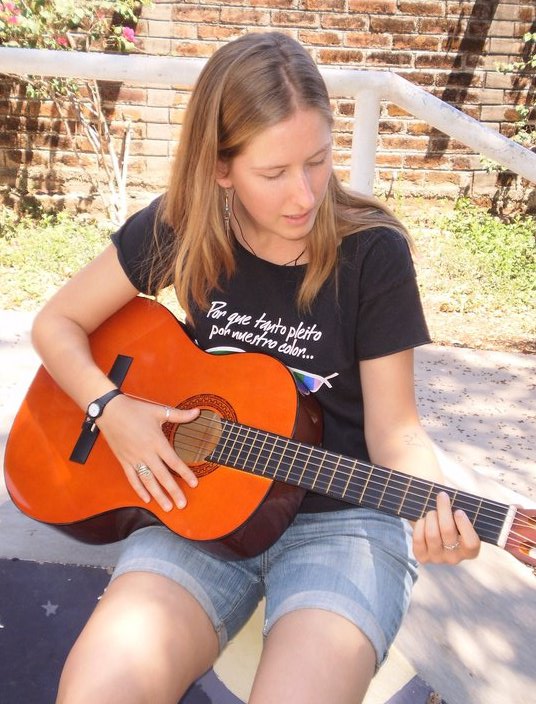Well. I had clearly never read Psalm 73 before I got today's GodPause.
3 For I was envious of the arrogant; I saw the prosperity of the wicked.
4 For they have no pain; their bodies are sound and sleek.
5 They are not in trouble as others are; they are not plagued like other people.
These early verses work well with a conversation I was having with myself on the way to the Mennonite Bake Shop this morning. (For anyone coming to Xela - this is a must, especially if you like whole wheat bread, granola, good yogurt, donuts, etc.)
On my way there, I saw a wallet on the ground, clearly emptied out and thrown. A few steps farther, I saw the torn up remains of the photos of two children. This was the part that made me sad - the loss of the money was, certainly, a difficulty for the former owner of the wallet. But it is not common to have photos here, especially of family. So these photos of kids (a son and daughter? niece and nephew? grandchildren? godchildren?) were very likely among relatively few. One of those losses bigger than the monetary loss.
Then a few blocks past this, there was a little corner with a slightly more secluded space where clearly many people had pooped over the last few hours. I've realized in the last few weeks that I can also now often tell the difference between urine on the ground - human or dog. (It's not so scientific - generally the dudes here pee on the wall, not directly on the ground. It's more of a height thing.) For some reason I feel less weird about stepping in dog pee.
Another reality of life here is that people tend to be really friendly on the streets. I've noticed this less as "out of the ordinary" than have my fellow students from places like LA and New York. Herein lies my point in all of this: None of the things that I have seen is peculiarly, intrinsically Guatemalan - they happen everywhere.
I think this is one aspect of what makes it so easy to feel at home here. But it also causes a great dissonance between my experience and that of most Guatemalans. I am pretty clearly the among the arrogant mentioned in the psalm. That's not an uncommon reality when I read or listen to biblical readings, but rarely is it so clearly spelled out in ways that describe the mundane parts of my life. My body works well and has not been marred by malnutrition, violence, or lack of medical care. I have access to all the food I could ever want, such that I do sometimes feel like my eyes will bulge out of my head after a good meal. Even as I travel here, I know in the back of my mind that I can rely on my nationality to protect me from most physical crime, given the history of enormous violence in this part of the world on the part of my country. Cultural imports here from the US are unquestioned and taken at face value as being positive. (Example: One of my housemates teaches health classes to kids - sex ed to 5th and 6th graders, food classes to 1st graders. With the younger ones, they play "Good food/Bad food" - the kids ALWAYS label McDonald's as "good food" because it comes from a restaurant.)
11 And they say, "How can God know? Is there knowledge in the Most High?"
We are pretty comfortable not knowing - or assuming that most folks don't know the things that make us uncomfortable. Most in the US don't know about the School of the Americas, the history of US intervention here, or the currently rampant impunity in the face of human rights atrocities. (More people die in Guatemala each day now than during the 36-year civil war - and only 2% of the crimes are ever even investigated.) And this is comforting in moments when we choose inaction - at least our neighbors will never know.
Last week I took a walk to Parque Central in the evening with two other women from the Casa. We met two grown men - both fairly drunk, but still functional - who talked with us about philosophy and poetry. When people ask what I studied in school and I tell them "religion," it usually sets off a great stream of philosophical questions that I am supposed to have the answer to. I'm not usually especially impressive in this situation and that is at least doubled in Spanish. So when one man asked what he should do (very generally, open-endedly), the only thing that came to mind that fit my language skills was to tell him to keep hope. He sort of sighed and said that he knew that that was important. Then he paused and asked, "But for how long?"
Subscribe to:
Post Comments (Atom)

No comments:
Post a Comment